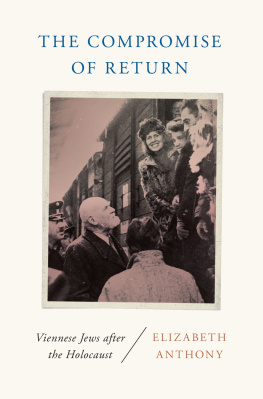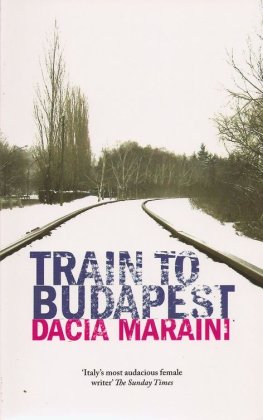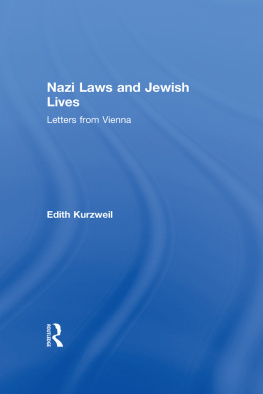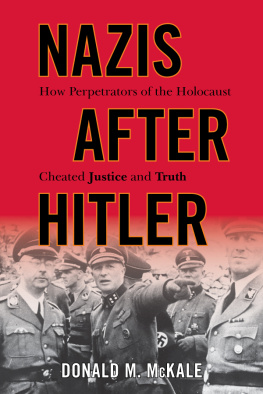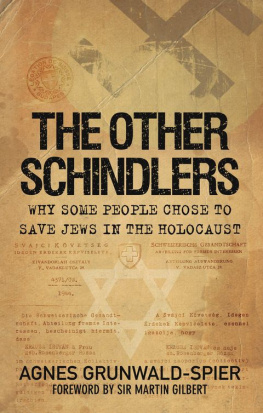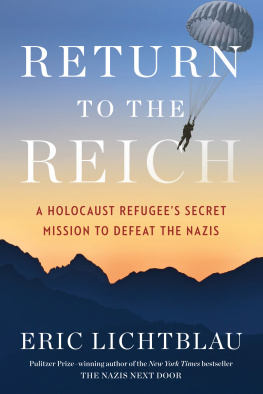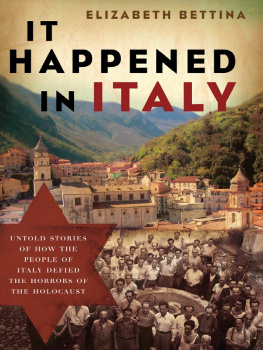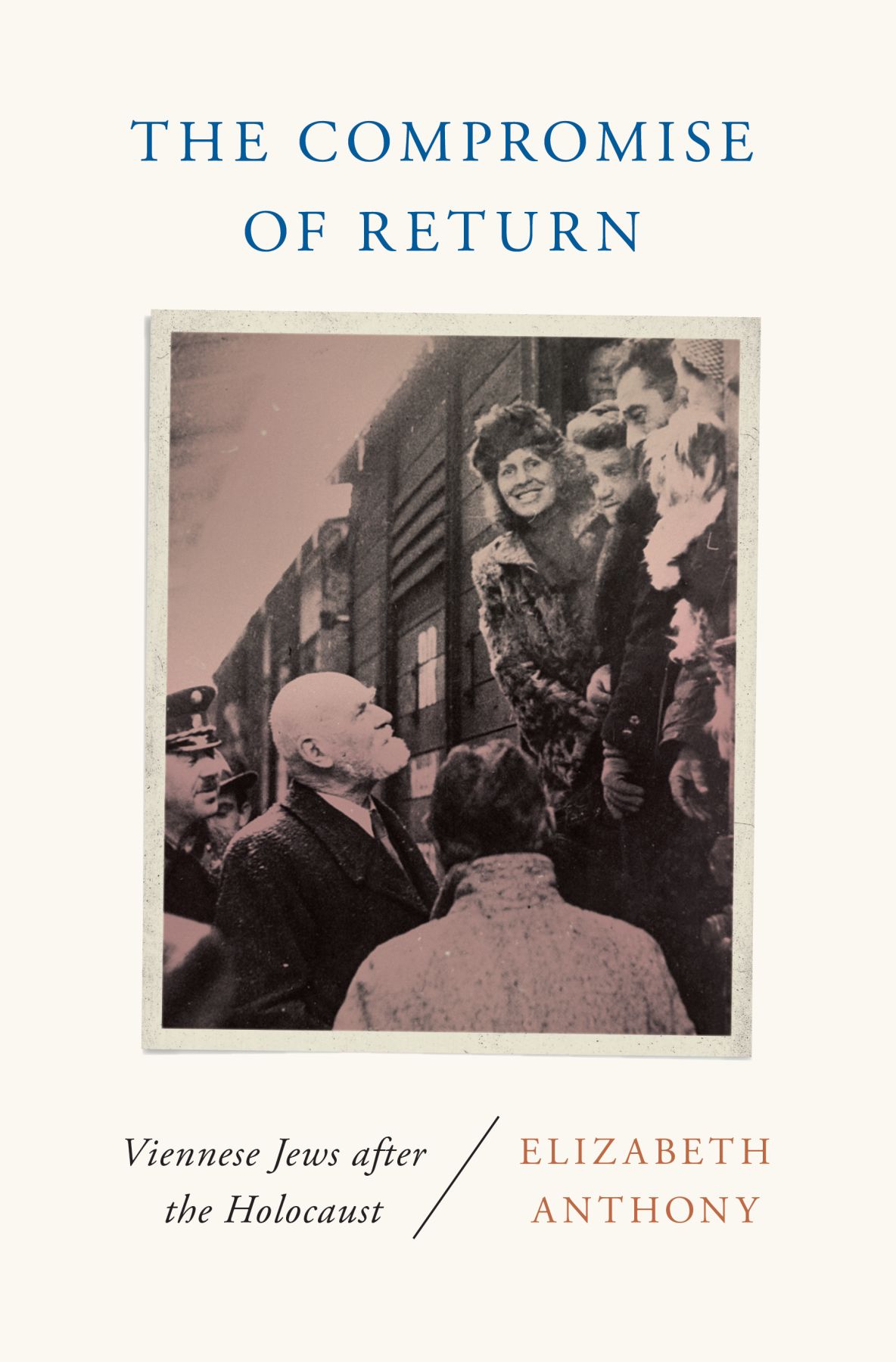
Praise for The Compromise of Return
In an engaging, thoroughly researched study, Elizabeth Anthony reveals how and why Jewish returnees came back to their city, Vienna, but not to Austria. They persisted in reclaiming their familial, professional, and political homes, as they compromised with ongoing individual and governmental antisemitism, including the refusal to return their property. Elegantly written, Anthonys book highlights the hardships and disappointments of Jewish survivors as they settled back home.
Marion Kaplan, author of Hitlers Jewish Refugees: Hope and Anxiety in Portugal
With The Compromise of Return Elizabeth Anthony brings history alive. She paints a vivid picture of the life of Jewish Austrians who chose to remain in or returned to Vienna after the fall of the Nazi regime. Through poignant personal interviews coupled with meticulous archival research and in conversation with international scholarship, the author convincingly argues how their unique Jewish-Viennese identities allowed them to remain in an anti-Semitic society that presented itself as Hitlers first victim. The Compromise of Return, the first comprehensive English-language study on the topic, constitutes a major contribution to post-war Austrian and Holocaust histories.
Jacqueline Vansant, author of Reclaiming Heimat: Trauma and Mourning in Memoirs by Jewish Austrian Remigrs
Deeply researched and beautifully written, this book tells the poignant story of Jewish survivors return to Vienna, really for the first time. Brimming with insights, it gives voice to the returnees; it is they who stand at the core of this history.
Dirk Rupnow, Institute for Contemporary History, University of Innsbruck
The Compromise of Return
The Compromise of Return
Viennese Jews after the Holocaust
Elizabeth Anthony

Wayne State University Press
Detroit
2021 by Elizabeth Anthony. All material in this work, except as identified, is licensed under a Creative Commons Attribution-NonCommercial-NoDerivatives 4.0 International License. To view a copy of this license, visit https://creativecommons.org/licenses/by-nc-nd/4.0/. All material not licensed under a Creative Commons license is all rights reserved. Permission must be obtained from the copyright owner to use this material.
ISBN 978-0-8143-4838-3 (paperback); ISBN 978-0-8143-4813-0 (ebook)
Library of Congress Control Number: 202094884
Cover image: Mayor Theodor Krner welcomes Austrian Jews returning from Shanghai at Viennas Wien-Meidling train station. (US Holocaust Memorial Museum; courtesy of the US National Archives and Records Administration, College Park, MD)
References to internet websites (URLs) were accurate at the time of writing. Neither the author nor Wayne State University Press is responsible for URLs that may have expired or changed since the manuscript was prepared.
Published in association with the United States Holocaust Memorial Museum

The US Holocaust Memorial Museums Jack, Joseph and Morton Mandel Centers mission is to ensure the long-term growth and vitality of Holocaust Studies. To do that, it is essential to provide opportunities for new generations of scholars. The vitality and the integrity of Holocaust Studies requires openness, independence, and free inquiry so that new ideas are generated and tested through peer review and public debate. The opinions of scholars expressed before, during the course of, or after their activities with the Mandel Center do not represent and are not endorsed by the Museum or its Mandel Center.
Wayne State University Press
Leonard N. Simons Building
4809 Woodward Avenue
Detroit, Michigan 48201-1309
Visit us online at wsupress.wayne.edu
For my mother, Susan Lillie Anthony, and in loving memory of Joseph Peter Anthony, Jr., and Lisa McCloskey Georgules
Contents
This book represents not only a decades worth of work but also a synthesis of distinct phases of my life. It signifies a logical progression from one stage to the next and incorporates my past professional life working with Holocaust survivors, my private and professional experiences of growth in Vienna, my scholarly life of research and writing about survivors, and my current and continuing path as a Holocaust historian. With the weight of such significance, both personal and professional, I struggle for a proper expression of appreciation for the numerous people and institutions that showed immense confidence in my research. I grasp for appropriate words of thanks for the extraordinary generosity of time and expertise shown by colleagues and friends over the past ten years.
Perhaps the most difficult to articulate is my gratitude for Debrah Dwork, founding director of the Strassler Center for Holocaust and Genocide Studies at Clark University, my doctoral adviser, and my friend. From the moment we met in her living room to discuss my application to the Clark University doctoral program, it was confirmed; she was the scholar with whom I wanted to work. I wanted to learn from her. Debrahs tireless support and unwavering belief in me has shaped the Holocaust historian and professional I am today. Without her, this book simply would not be. I am deeply grateful for her guidance, mentorship, and, above all, friendship, throughout the process of bringing this project from a seed of an idea through to publication.
The Strassler Center and Clark University also provided me the unmatched and inspired support of Taner Ackam, Thomas Khne, Olga Litvak, Robert Melson, and Mary Jane Rein, as well as Margaret Hillard, Jean Hearns, and Tatyana Macaulay. Colleagues and dear friends Alexis Herr, Jody Russell Manning, Christine Schmidt, and Raz Segal have been with me and this work from the start, and I appreciate the hundreds of hours of discussion and debate they enthusiastically provided. I am also grateful for input and encouragement from Clarkies Sara Brown, Sarah Cushman, Emily Dabney, Mikal Brotnov Eckstrom, Mike Geheran, Adara Goldberg, Stefan Ionescu, Natalya Lazar, Khatchig Mouradian, Ilana Offenberger, and Joanna Sliwa.
Atina Grossmann and Marsha Rozenblit generously read and advised on my dissertation committee and helped me keep consistent, accurate, and on task with Return Home, the earlier incarnation of The Compromise of Return. Dirk Rupnow knew I was embarking on the correct path with the right topic and has supported my research and me from the start. For contributions tangible and otherwise, I am also indebted to Thomas Barth, Tracy Brown, Julien Carabalona, Tim Corbett, Barbara Grell, Gabor Kadar, Marion Kaplan, Katharina von Kellenbach, Barbara Kintaert, Eduard Kubesch, Hannah Lessing, Alexandra Lux, Susanne Ogris, Katrin Paehler, Maggie Peterson, Binh Pok-Carabalona, Markus Priller, Karin Quigley-Draxler, Dan Roberts, Gayle Scroggs, Leslie Swift, Susanne Urban, Johanna Webster, Greg Weeks, Anna Wexburg-Kubesch, and Jenn Wood.
Many archivists, reference librarians, scholars, and experts around the world deserve special recognition for assistance they provided. At the United States Holocaust Memorial Museum, many thanks are due to Diane Afoumado, Michlean Amir, Suzanne Brown-Fleming, Ron Coleman, Kierra Crago-Schneider, Jo-Ellyn Decker, Krista Hegburg, Samantha Hinckley, Lisa Leff, Megan Lewis, Noelle Little, Alexandra Lohse, Jrgen Matthus, Geoff Megargee, Vanda Rajcan, Tracy Rucker, Paul Shapiro, Vincent Slatt, Suzy Snyder, Anatol Steck, and Wendy Lower. I would like to acknowledge Misha Mitsel and Shelly Helfand of the JDC Archives in New York, as well as the reference and reading room staff at the Leo Baeck Institute, the Center for the History of the Jewish People, Yad Vashem, the United States National Archives and Records Administration in College Park, and the Library of Congress in Washington, DC. Elisabeth Klamper at the Dokumentationsarchiv des sterreichischen Widerstandes (DW) has shown unparalleled kindness and munificence, both as an archivist and as a friend. Thanks to Brigitte Bailer and Winfried Garscha, also of the DW; Shoshana Duizend-Jensen at the Wiener Stadt- und Landesarchiv; and to the former and current staff at the Israelitische Kultusgemeinde Wien, especially Lothar Hbling, Susanne Uslu-Pauer, David Forster Winterfeld, and Ingo Zechner. The advice and support of Ed Serotta, Tanja Eckstein, and their team at Centropa helped me to shape the direction of my research from the beginning and provided many crucial introductions to survivors in Vienna. I am grateful for all they have done for me, as well as all they do for our field.
Next page
